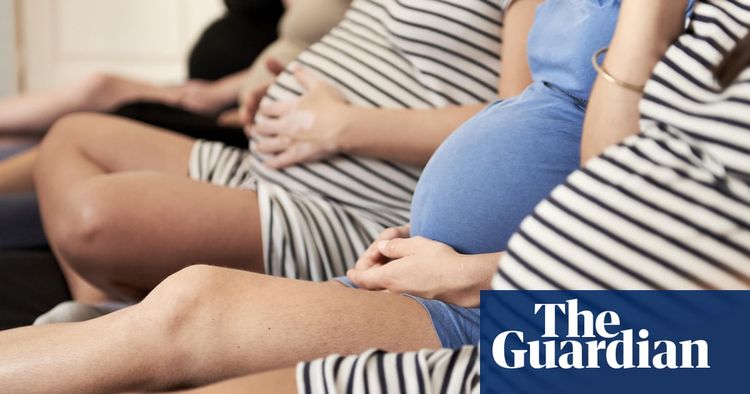Births among women over 50 rise 15% in England, figures show

In today's day and age, lots of people are relishing in the freedom that comes with having grown up children or deciding not to have kids. They're finally taking advantage of their free time by hitting the gym, enjoying date nights, and thinking about their retirement funds. But shockingly, more and more middle-aged women and their significant others are opting for the challenge of parenting a newborn, according to data from the Office for National Statistics (ONS).
A recent report by The Guardian revealed that there has been a surge of 15% in the number of women who have given birth in England and are over the age of 50 since 2016-18 and 2019-21. The report further highlighted that seven women who were over the age of 60 also gave birth during the 2019-21 period, and remarkably, two of them were even older than 65 years of age.
In the past few weeks, there has been a lot of attention given to the subject after renowned TV host Victoria Coren Mitchell, aged 51, and her spouse, comedian David Mitchell, aged 49, had their second child. Additionally, Tana Ramsay, aged 49 and the well-known chef Gordon Ramsay's wife, also welcomed their sixth child. This has brought the topic to light.
On Instagram, Tana Ramsay expressed relief after nine nerve-wracking months, stating that they have successfully weathered through it, and now, the Ramsay family is finally complete.
Although instances of women above 50 giving birth are infrequent, accounting for only 0.04% of live births in England between 2019 and 2021, their number is expanding. The records from the ONS indicate that there were 824 fresh mothers aged over 50 during that duration, as compared to 701 in the preceding three years, which marks a 15% surge.
There is a growing tendency among women to delay having children. The average age for childbirth in England and Wales reached nearly 31 years old in 2021, which is the highest it has ever been since data collection began in 1938.
The current increase in babies born to people over 45 years old is not a novel phenomenon in England and Wales. This age group experienced similarly high birth rates after the second world war, even though mothers typically had their first child when they were 28 or 29 years old during the late 1920s. In more recent times, there has been an even greater percentage of mothers who give birth in their late 40s than during the postwar period.
Perhaps one possible explanation for this trend is that as IVF and fertility treatments continue to advance, we are seeing a greater number of successful pregnancies in women who have reached older ages. This phenomenon was exemplified in 2015 when a woman from Germany named Annegret Raunigk made international news after giving birth to quadruplets at 65 years old.
In 2021, the age of the average person undergoing IVF treatment went up to 36, as reported by the Human Fertilisation and Embryology Authority (HFEA), the regulating body for IVF procedures. This is the highest age on record. The age for patients who have no partner was found to be 38.1 on average, whereas those with a male partner averaged 36, and patients with a female partner averaged 34.8.
Though the NHS no longer considers pregnant women over the age of 40 as "geriatric," there are still numerous, well-known health risks associated with their age. The National Childbirth Trust has documented increased chances of complications, such as hypertension, diabetes, pre-eclampsia, and obesity. Additionally, older mothers are more likely to face difficulties during childbirth, and their babies are at a higher risk of being born prematurely or with chromosomal abnormalities, including Down's, Edward's, and Patau's syndromes.
Nonetheless, Clare Murphy, who runs the British Pregnancy Advisory Service, pointed out that although medical risks are essential, we also need to consider the practical hurdles individuals face when trying to conceive and the advantages of having certain things in place prior to giving birth.
According to her, it is annoying when individuals worry that news about "older" mothers may cause younger ones to believe their reproductive window is limitless. She expressed that our research confirms that women are fully aware of their fertility period and that the reasons for delaying pregnancy are not due to lack of information or reliance on IVF to fulfill their desired family size. Rather, the delay is due to actual obstacles that exist in starting a family in the present day.
Murphy added that although certain risks may appear more significant, they must be considered in conjunction with other key determinants when deciding on the best time to start a family. These critical factors may include securing a compatible life partner, obtaining a stable employment opportunity, and accumulating funds for parental leave.
According to her, we are not proficient enough in comparing clinical risks and benefits with more extensive concerns as a society, especially when it comes to the discourse around becoming a mother, pregnancy, and breastfeeding. Women are attempting to make the optimal choices for themselves and their loved ones under the circumstances they face.









































